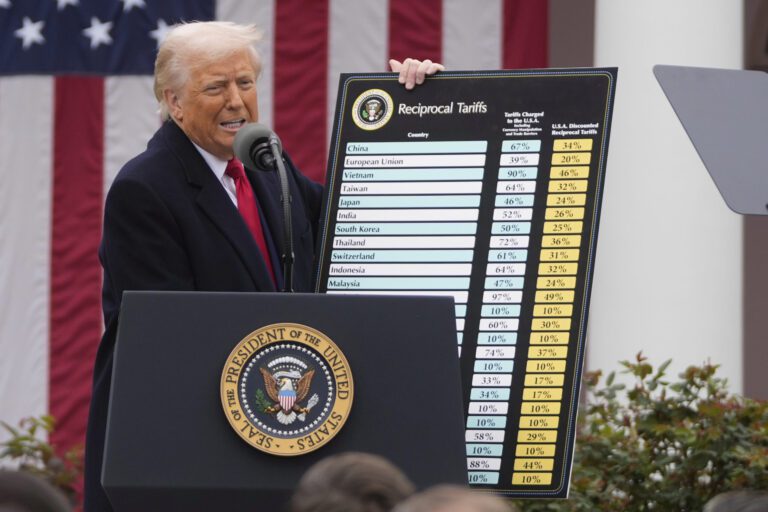Trump Defends Tariff Powers Amid Supreme Court Scrutiny
Former President Donald Trump expressed strong criticism of critics challenging his authority to impose tariffs on foreign imports. This reaction comes amid concerns from Trump and members of his administration that the U.S. Supreme Court might impose constraints on his tariff powers in the near future.
Pending Supreme Court Decisions
Recently, the Supreme Court heard arguments in two significant cases brought forth by small businesses and Democratic-led states. Initial indications suggest that the justices could be poised to impose limitations on Trump’s tariff powers, raising alarms within his circle.
- Context of the Cases: These legal challenges argue that Trump has overstepped his authority regarding tariffs.
- Justices’ Concerns: Questions posed by several justices hint at a growing apprehension about unilateral executive power concerning tariffs.
Trump’s Outrage on Social Media
In a series of posts on his Truth Social platform, Trump reacted vehemently, insisting that the perception of tariffs as a misuse of power is unfounded. Before enjoying a round of golf at his Mar-a-Lago estate, he made several noteworthy statements:
- Congressional Authority: Trump emphasized, “The President of the United States is allowed (and fully approved by Congress!) to stop ALL TRADE… and LICENSE a Foreign Country, but is not allowed to put a simple Tariff on a Foreign Country, even for purposes of NATIONAL SECURITY. That is NOT what our great Founders had in mind!”
- Comparison with Other Nations: He argued that it is unjust for other countries to impose tariffs on the U.S. while American tariffs face scrutiny: “Other Countries can Tariff us, but we can’t Tariff them??? It is their DREAM!!!”
Trump went on to express frustration, questioning, “HAS THE UNITED STATES SUPREME COURT NOT BEEN TOLD THIS??? WHAT THE HELL IS GOING ON???”
Criticism from His Own Administration
Despite Trump’s claims, Treasury Secretary Scott Bessent offered a more measured perspective. In an interview on ABC News’s This Week, he addressed Trump’s assertion of a potential $2,000 dividend resulting from the tariffs:
- Clarification on Dividends: Bessent explained that such dividends could originate from tax cuts rather than tariffs themselves. “It could be just the tax decreases that we are seeing on the president’s agenda,” he stated, mentioning various tax policies under consideration.
Previous Legal Challenges to Tariffs
Trump’s tariffs have already faced significant legal hurdles. Both the U.S. Court of International Trade and the U.S. Court of Appeals for the Federal Circuit have deemed them illegal, although the taxes remain in place while appeals proceed.
Supreme Court Hearing Insights
During last week’s Supreme Court hearings, concerns regarding the executive branch’s tariff imposition were evident. Justice Neal Gorsuch, once appointed by Trump, raised critical questions:
- Separation of Powers: Gorsuch probed whether such broad powers could lead to Congress abdicating its responsibilities, asking, “What would prohibit Congress from just abdicating all responsibility to regulate foreign commerce… to the President?”
Similarly, Chief Justice John Roberts challenged the administration’s stance by questioning the implications of tariffs, asserting that taxation has traditionally been a core power of Congress, something the president cannot unilaterally claim.
Conclusion
As the Supreme Court deliberates on these pivotal cases, the future of Trump’s tariff powers hangs in the balance. The administration’s ability to enforce tariffs without congressional approval may face unprecedented changes. For now, the debate over the balance of power continues, drawing attention from both sides of the political aisle.
For further information on the ongoing legal challenges related to tariffs, explore NPR’s coverage here. For more insights on executive powers and the implications of tariffs, visit Politico’s analysis.
This article investigates the complex dynamics surrounding tariffs and executive powers, presenting a rounded narrative that includes key voices and critical insights within the current political landscape.


